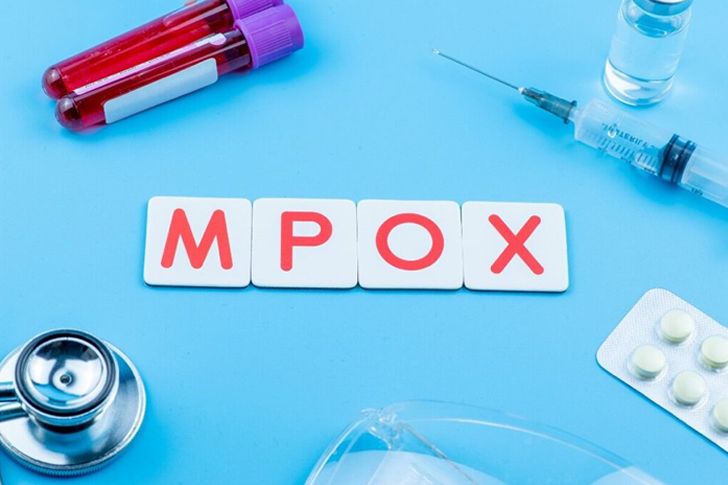Mpox: Symptoms, Risks, and How to Prevent It
Mpox, formerly known as monkeypox, has recently emerged as a significant public health concern. This article provides essential information about the disease, including its symptoms, transmission, prevention, and how it differs from other illnesses like chickenpox.

What is Mpox?
Mpox is a viral zoonosis, meaning it’s a virus transmitted to humans from animals. It was first identified in monkeys in 1958, hence the original name “monkeypox.” The virus is part of the same family as smallpox, but it is less severe and more manageable with proper care.
Key Points:
- Origin: First identified in monkeys, but can infect humans.
- Virus Family: Orthopoxvirus, the same as smallpox.
- Severity: Less severe than smallpox, but can still cause significant health issues.
Signs and Symptoms of Mpox
Mpox shares many symptoms with other viral illnesses, which can make initial diagnosis challenging. However, there are distinct features to watch for:
Common Symptoms:
- Fever: One of the first signs, often accompanied by chills.
- Headache: Persistent and severe.
- Muscle Aches: General body pain, especially in the back.
- Swollen Lymph Nodes: This is a key symptom distinguishing mpox from smallpox.
- Rash: Begins on the face and spreads to other parts of the body, evolving from flat lesions to pustules.
- Fatigue: General feeling of tiredness and weakness.
Symptom Progression:
- The rash typically starts within 1-3 days after the onset of fever and progresses from macules to papules, vesicles, pustules, and finally crusts.
Transmission & Prevention
Mpox can spread through several routes, making prevention critical, especially in regions with active outbreaks.
Transmission Routes:
- Animal to Human: Direct contact with blood, bodily fluids, or cutaneous lesions of infected animals.
- Human to Human: Close contact with respiratory secretions, skin lesions, or contaminated materials such as bedding.
- Environmental: Prolonged exposure to infected animals or contaminated surfaces.
Prevention Strategies:
- Vaccination: Smallpox vaccines offer some protection against mpox.
- Hygiene Practices: Regular handwashing and use of hand sanitizers.
- Avoid Contact: Stay away from animals that could carry the virus, and avoid close contact with infected individuals.
- Use of PPE: Healthcare workers should use personal protective equipment when treating infected patients.
Mpox vs. Chickenpox: Understanding the Differences
Mpox can often be confused with chickenpox due to the similarity in rash and other symptoms. However, there are critical differences between the two:
| Feature | Mpox | Chickenpox |
|---|---|---|
| Cause | Orthopoxvirus (same family as smallpox) | Varicella-zoster virus (herpesvirus family) |
| Rash | Starts on the face, spreads; evolves from macules to pustules | Starts on the trunk, spreads; progresses from macules to vesicles |
| Lymph Nodes | Swollen lymph nodes are common | Rarely associated with swollen lymph nodes |
| Severity | Typically more severe, with higher risk of complications | Generally mild, except in immunocompromised individuals |
| Transmission | Close contact with infected persons or animals | Airborne droplets, direct contact with rash |
| Vaccination | Smallpox vaccine provides protection | Varicella vaccine prevents chickenpox |
Key Highlights:
- Rash Distribution: Mpox often starts on the face, whereas chickenpox usually starts on the trunk.
- Lymph Node Involvement: Swollen lymph nodes are a hallmark of mpox but not typically seen in chickenpox.
- Complication Risks: Mpox can lead to more severe complications, especially in individuals with weakened immune systems.
Q&A: Common Questions About Mpox
Q: Is Mpox the same as monkeypox?
A: Yes, Mpox is the new name for monkeypox, reflecting efforts to use non-stigmatizing language.
Q: How effective is the smallpox vaccine against Mpox?
A: The smallpox vaccine is approximately 85% effective in preventing Mpox, given the similarity of the viruses.
Q: Can Mpox be fatal?
A: While Mpox is generally less severe than smallpox, it can be fatal, particularly in people with weakened immune systems or in areas with inadequate healthcare.
Q: What should I do if I suspect I have Mpox?
A: Seek medical attention immediately. Isolation is crucial to prevent spreading the virus to others.
Q: Are there treatments available for Mpox?
A: Treatment primarily focuses on relieving symptoms and managing complications. Antiviral drugs like Tecovirimat may be used in severe cases.
Conclusion
Mpox is a serious but manageable public health threat. Understanding the symptoms, transmission methods, and prevention strategies is crucial for protecting yourself and others. While it shares similarities with other viral infections like chickenpox, key differences highlight the need for targeted awareness and response.
References







Recent Comments